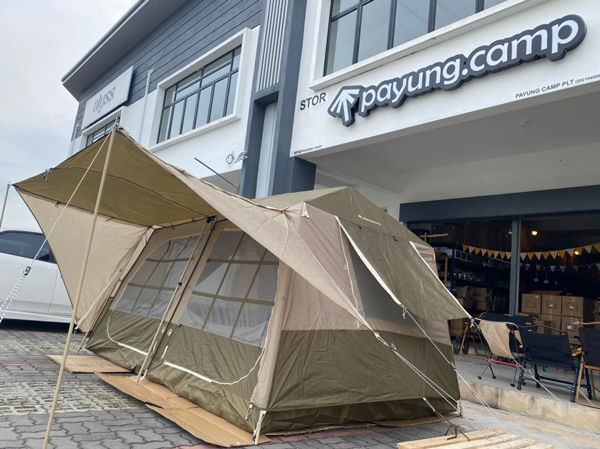Venturing into the great outdoors for the first time can be both exciting and overwhelming. One of the most critical decisions you’ll make is choosing the right tent. This guide will help you understand the factors to consider and whether you should buy or rent a tent for your first camping trip.

Buy or Rent: Which is Best for Beginners?
Buying a Tent:
Pros:
- Long-term Investment: If you plan to camp regularly, purchasing a tent can be a cost-effective option in the long run.
- Personal Preference: Owning a tent allows you to choose one that perfectly fits your needs and style.
- Immediate Availability: Having your tent means you can go camping anytime without worrying about rental availability.
Cons:
- Initial Cost: Good-quality tents can be expensive, which might not be ideal if you’re unsure about your long-term interest in camping.
- Maintenance and Storage: You’ll need to clean, maintain, and store the tent properly when not in use.
Renting a Tent:
Pros:
- Cost-effective for Beginners: Renting is cheaper initially, making it a great option for those who are just trying out camping.
- No Maintenance: Rental companies handle the cleaning and maintenance, so you don’t have to worry about it.
- Test Different Models: Renting allows you to try various types of tents to see what suits you best before committing to a purchase.
Cons:
- Limited Availability: Popular models might not always be available, especially during peak seasons.
- Recurring Costs: Over time, frequent rentals can become more expensive than buying a tent.
Tips for Choosing the Right Tent
- Consider Your Group Size and Space Needs:
- Tents come in various sizes, from solo tents to large family tents. Ensure the tent size matches the number of people and gear you plan to accommodate.
- Seasonality:
- 3-Season Tents: Suitable for spring, summer, and fall. They offer a balance of ventilation, warmth, and weather protection.
- 4-Season Tents: Designed for winter use, these tents can withstand heavy snow and harsh winds but may be overkill for milder conditions.
- Weight and Portability:
- If you’re backpacking, prioritize lightweight and compact tents. For car camping, weight is less of an issue, so you can opt for a more spacious tent.
- Ease of Setup:
- As a beginner, look for tents with straightforward setup instructions and fewer poles. Instant or pop-up tents can be particularly user-friendly.
- Ventilation:
- Good ventilation is crucial to prevent condensation inside the tent. Look for tents with multiple windows, vents, and mesh panels.
- Weather Resistance:
- Ensure the tent is waterproof and windproof. Features like a full-coverage rainfly and sturdy pole construction are essential for weather protection.
- Additional Features:
- Consider features like vestibules for gear storage, interior pockets, and a gear loft for better organization.
Whether you decide to buy or rent, the key is to choose a tent that fits your specific needs and camping style. Renting can be a great way to test the waters, while buying offers long-term benefits if you plan to camp frequently. By considering factors like group size, seasonality, weight, setup ease, ventilation, and weather resistance, you can make an informed decision and enjoy a comfortable and memorable camping experience.

